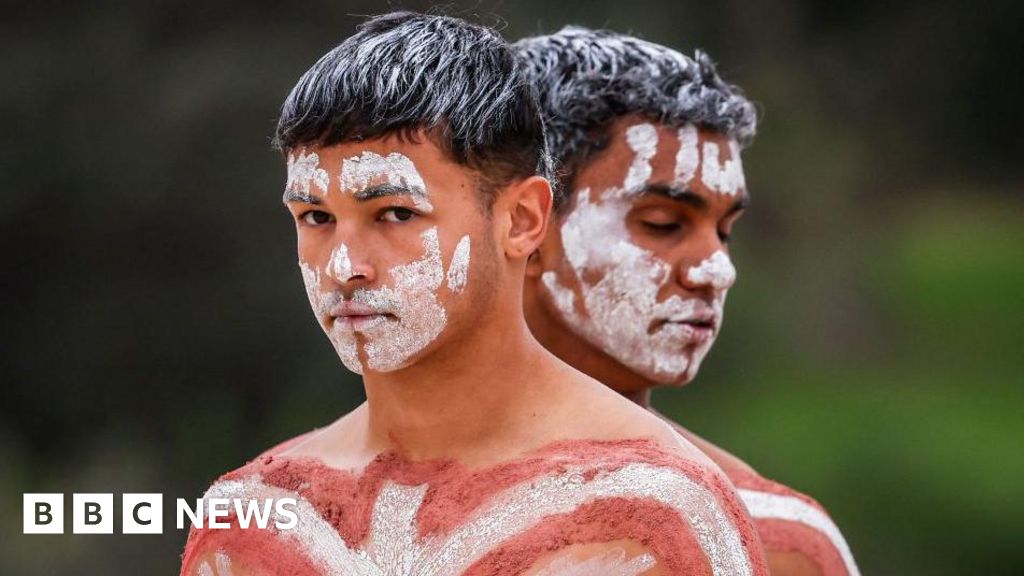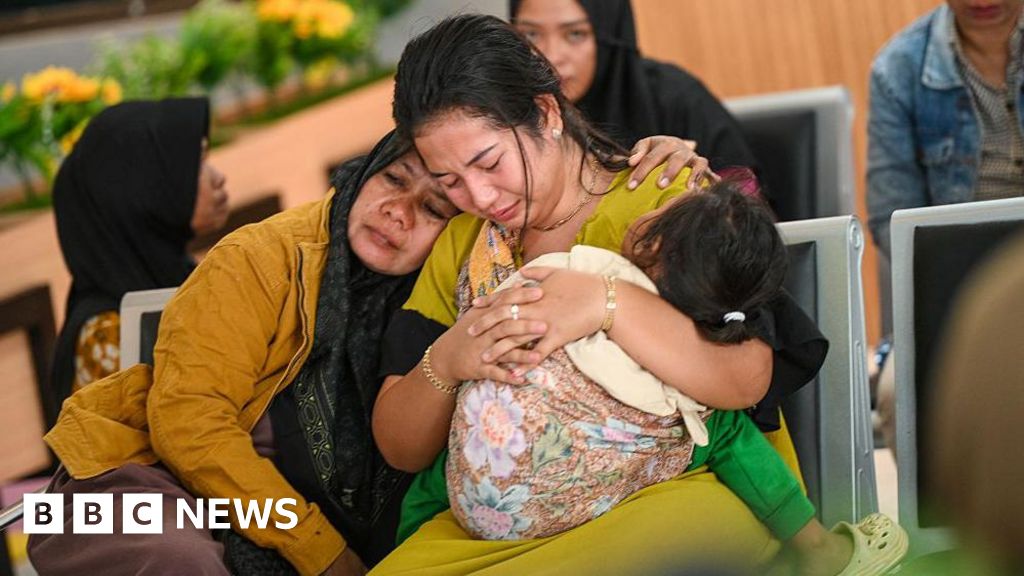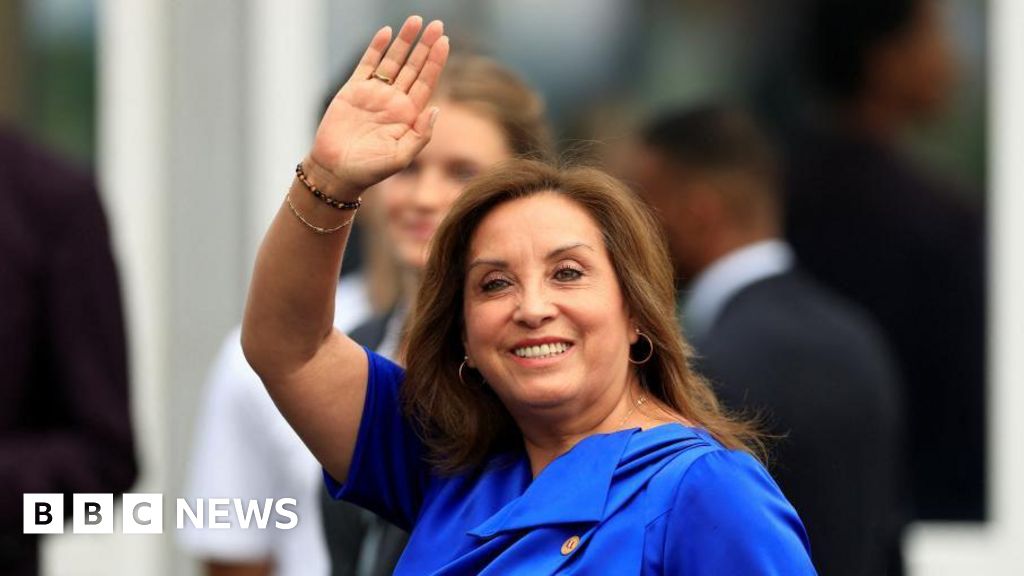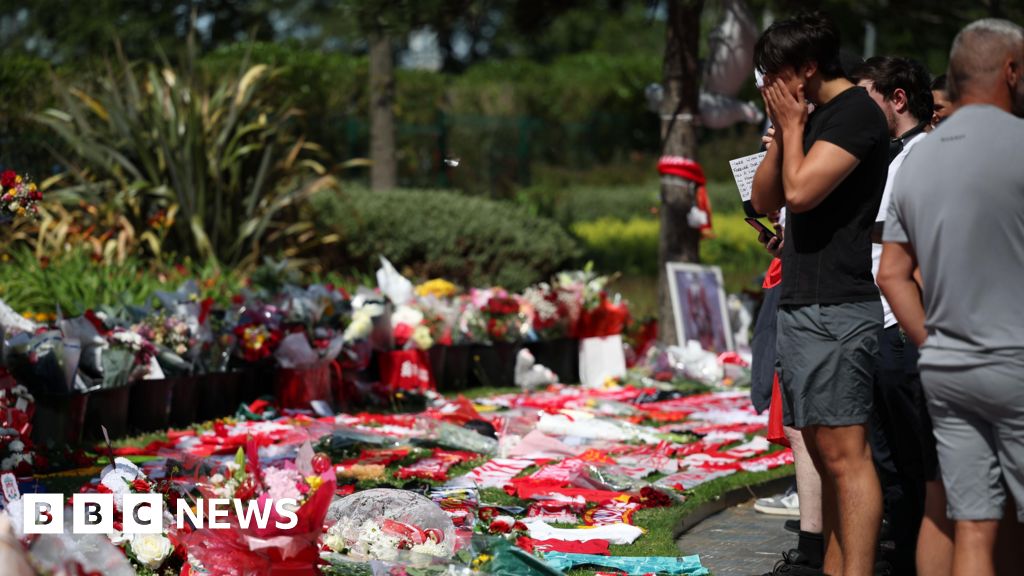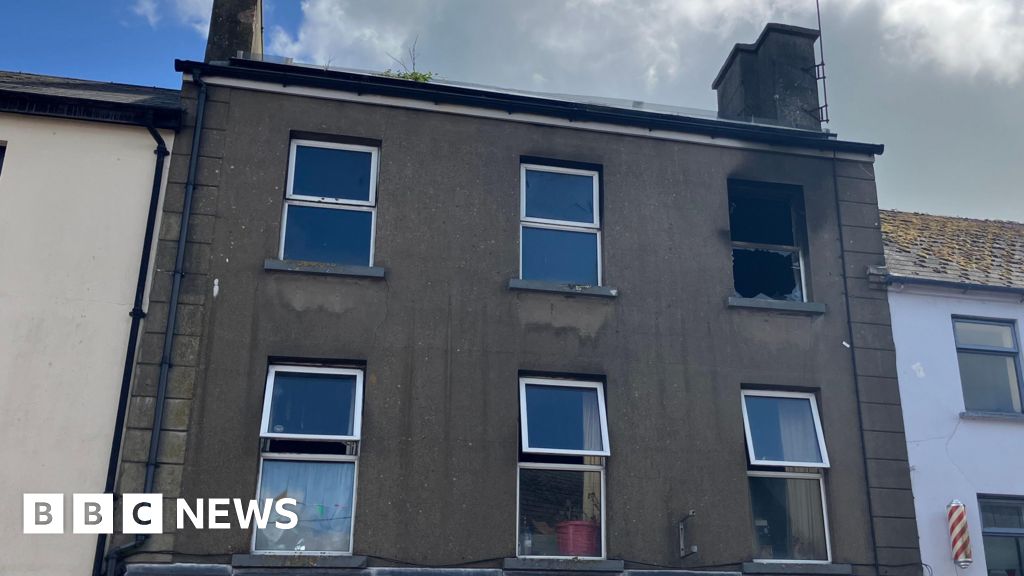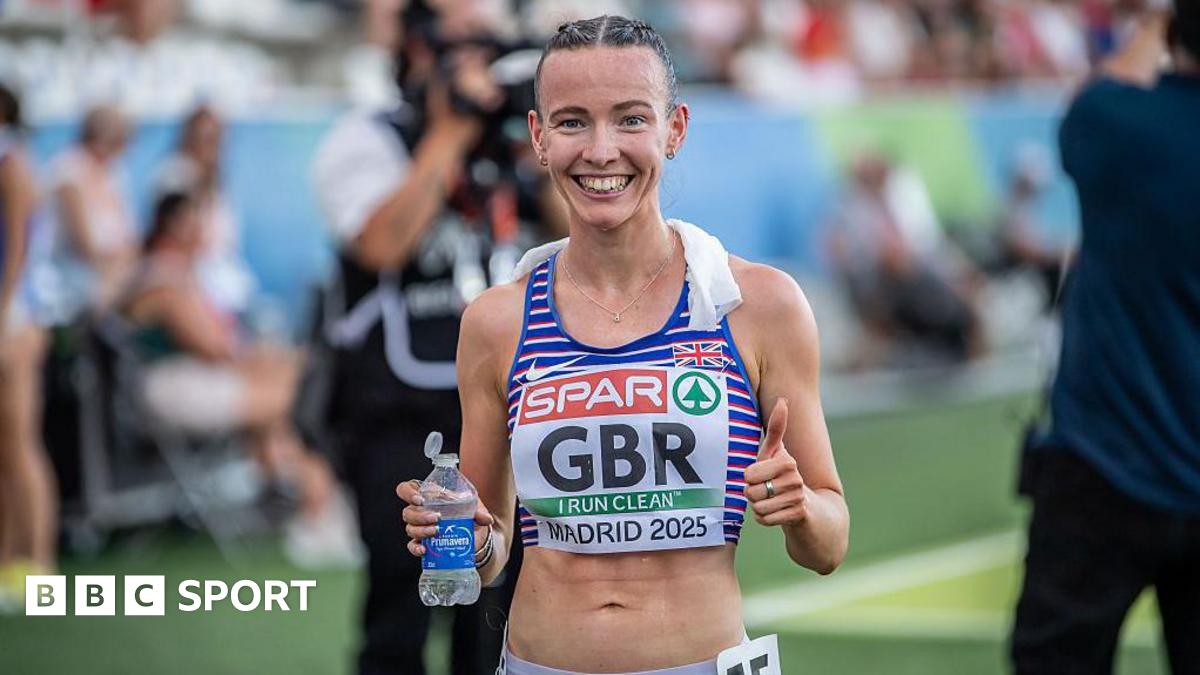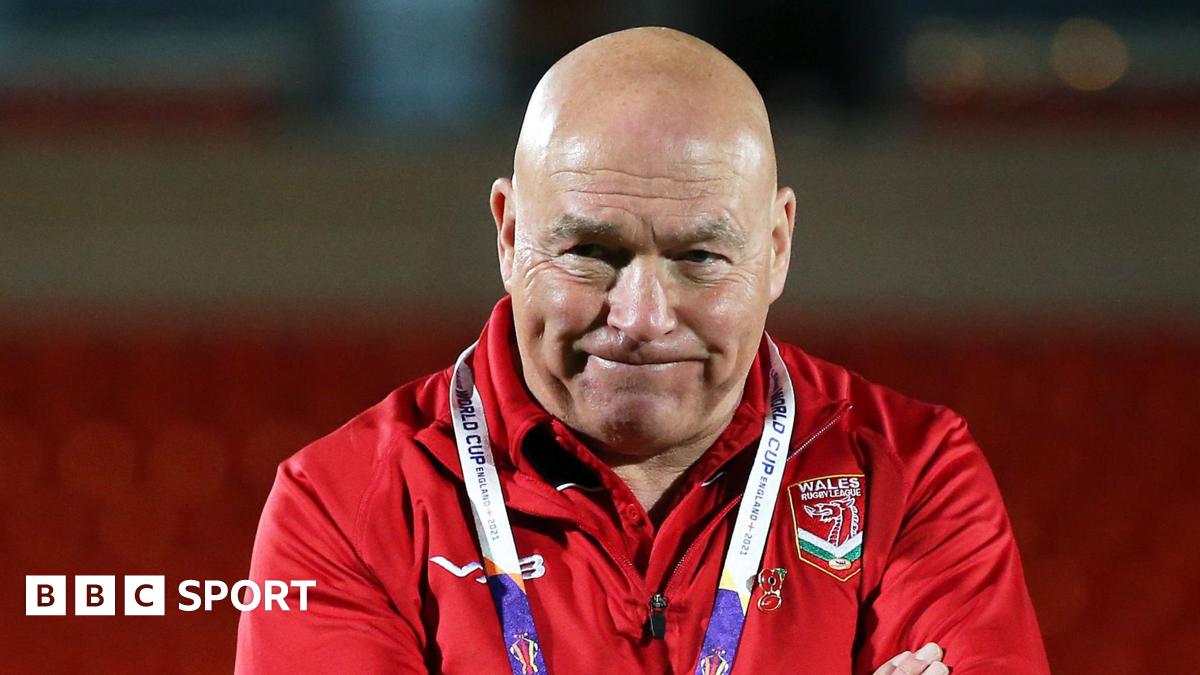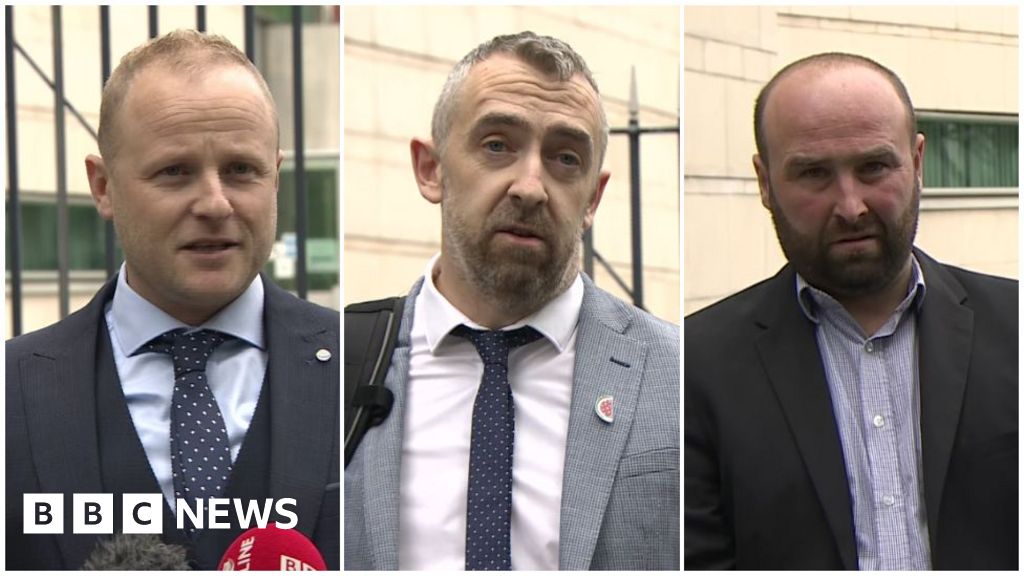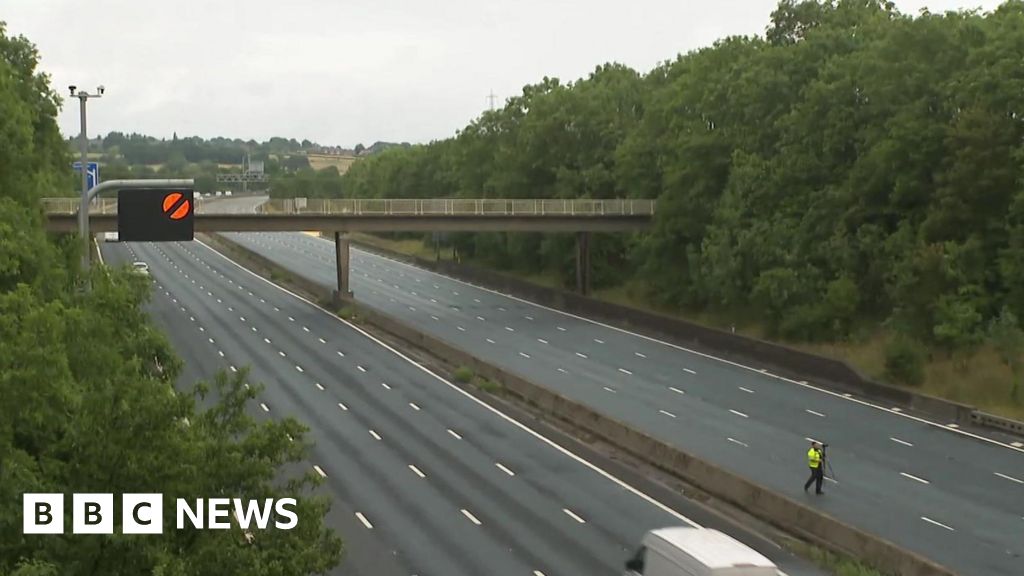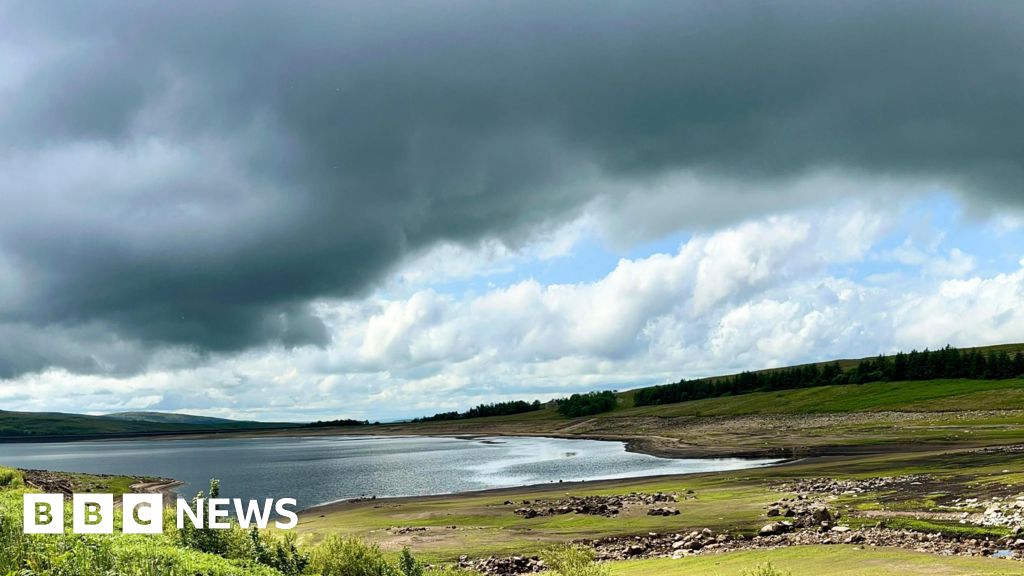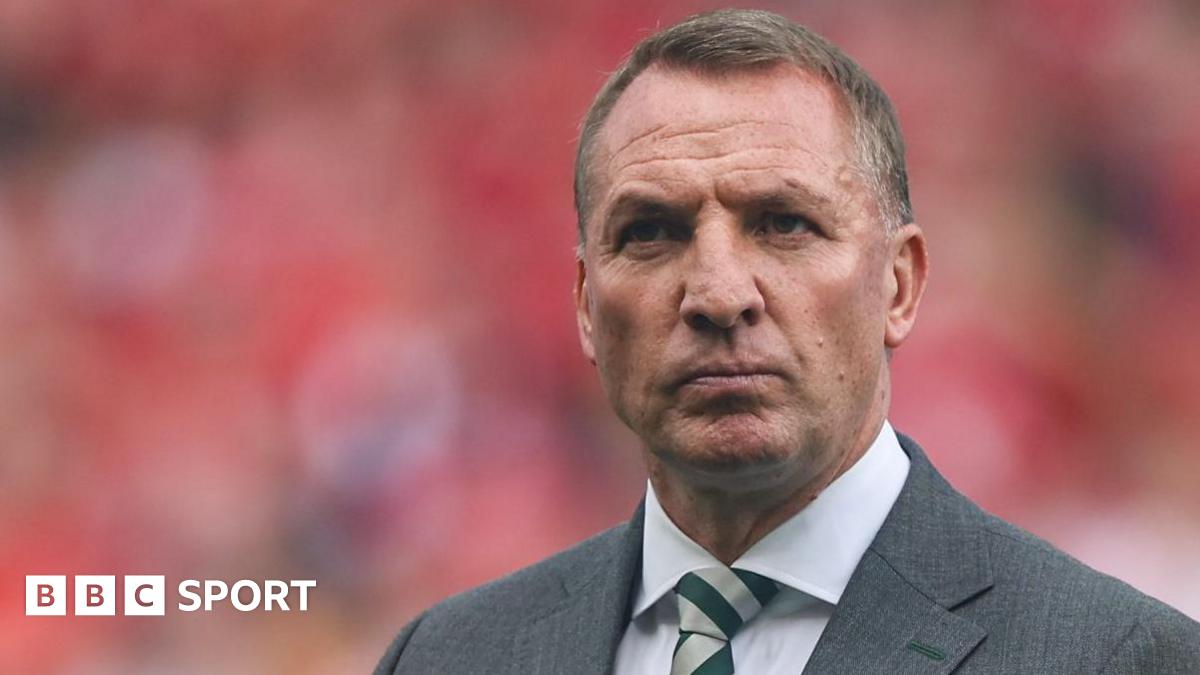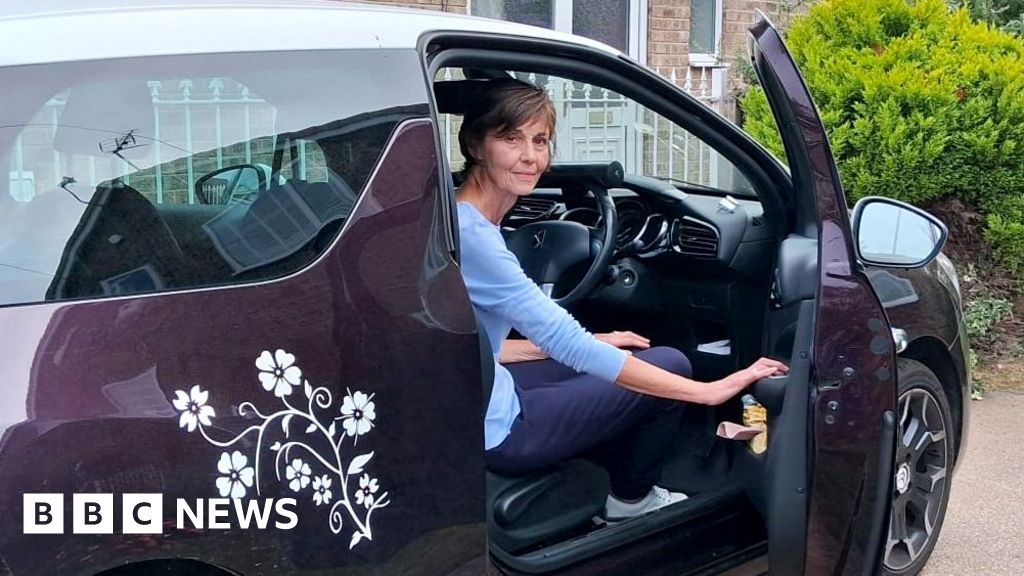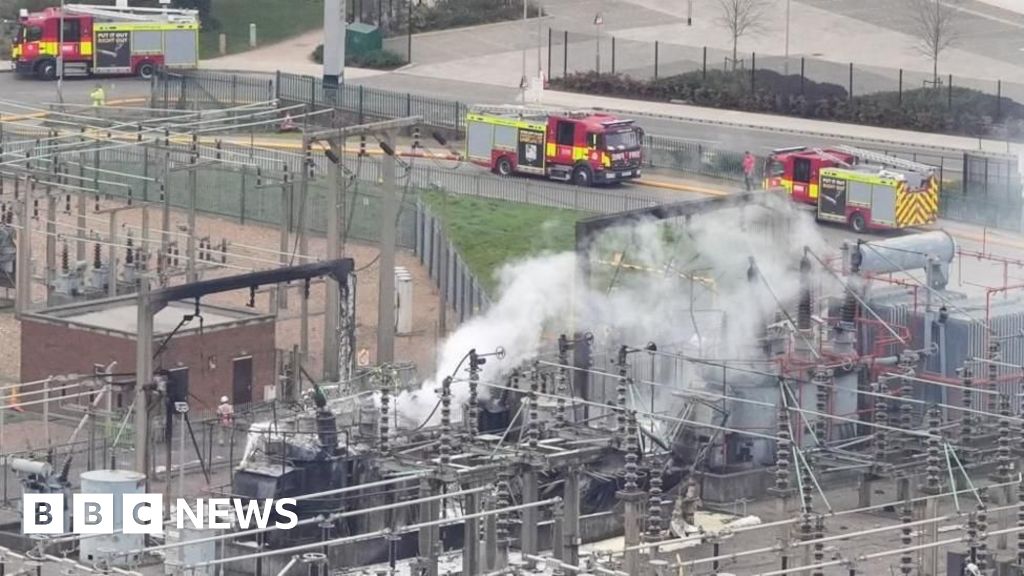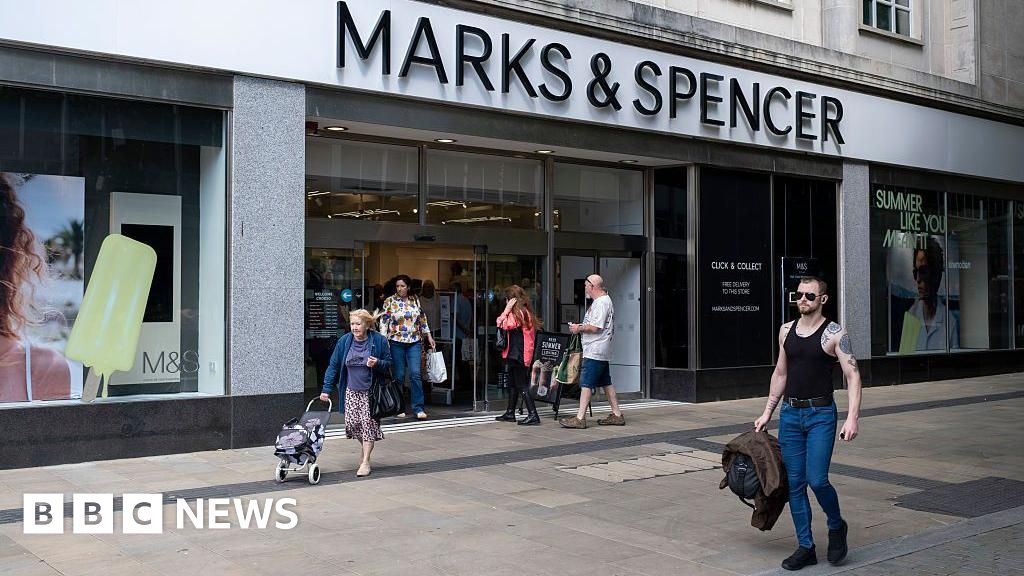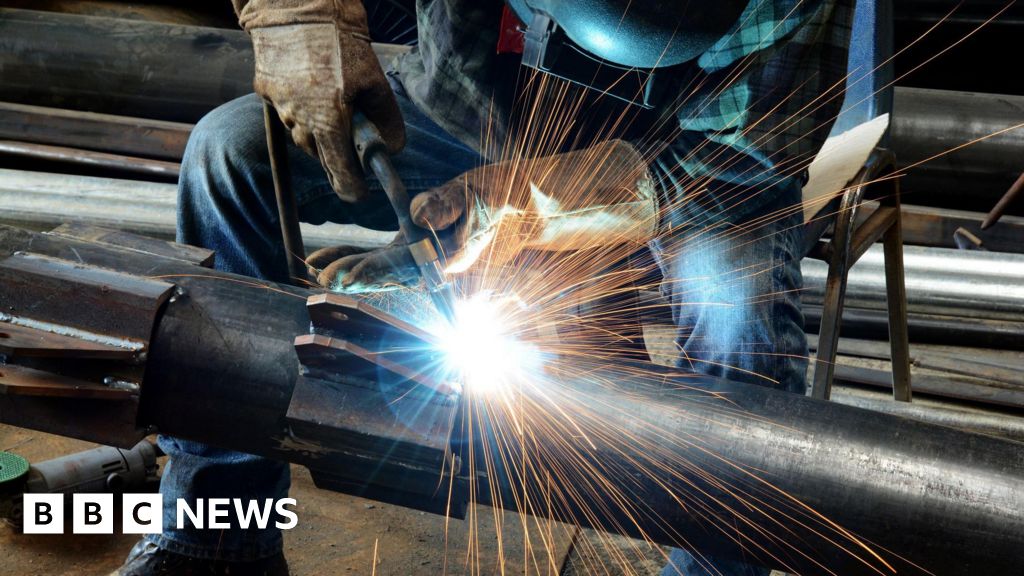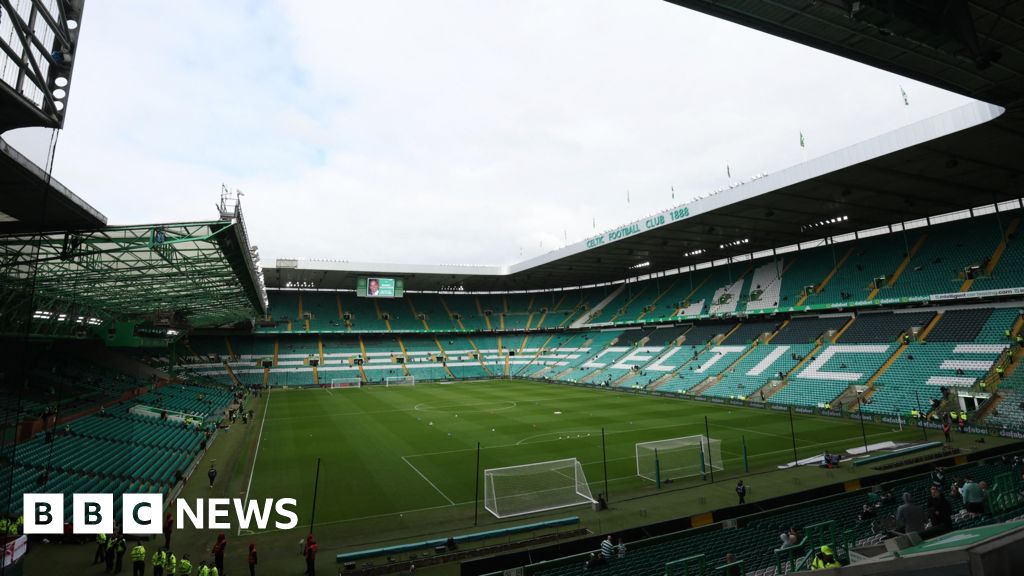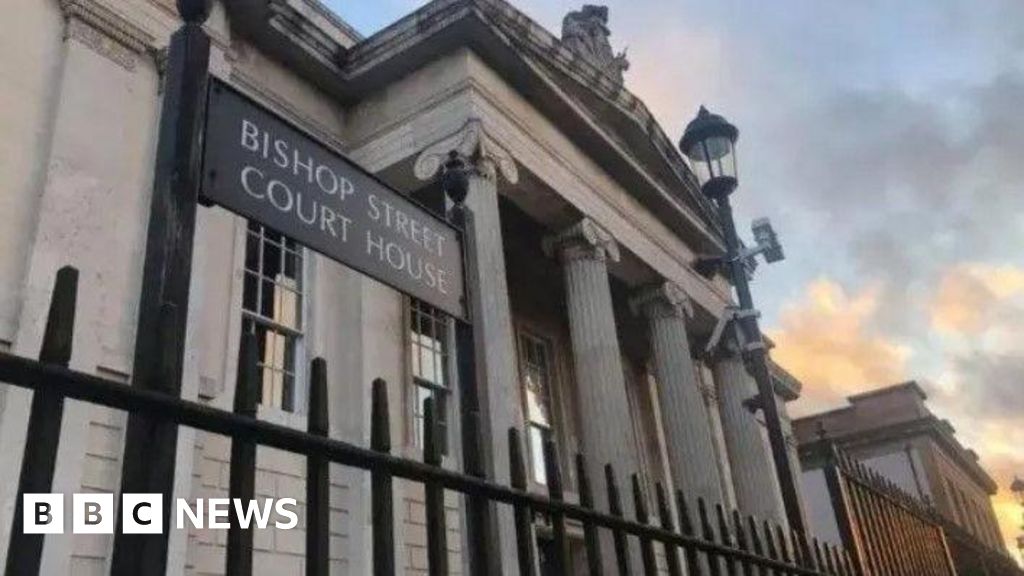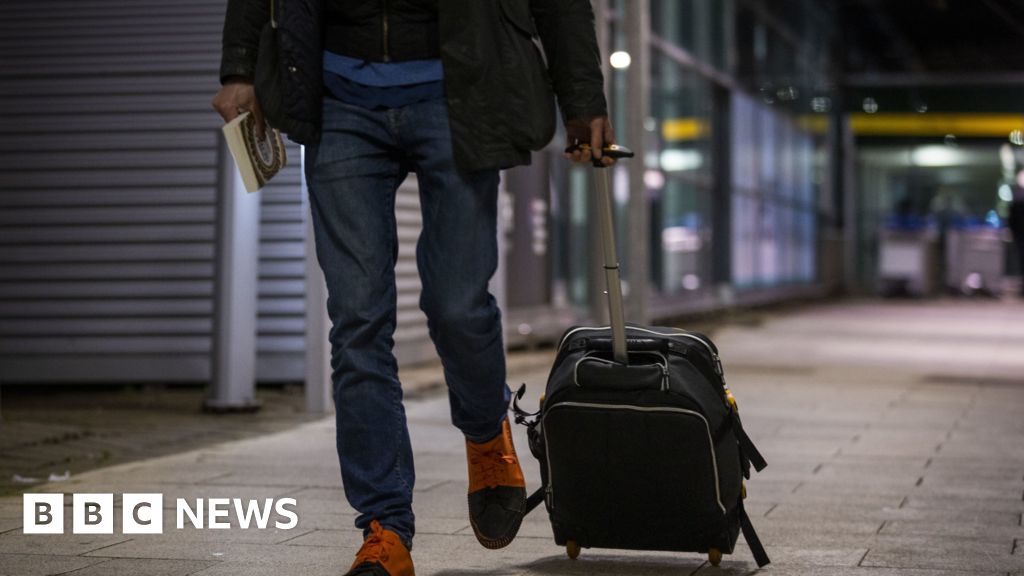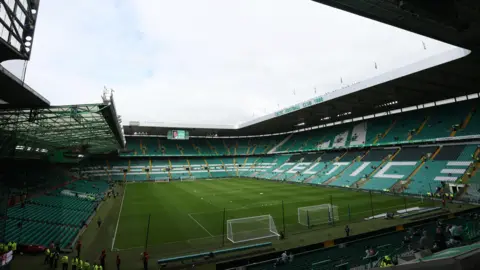 Reuters
ReutersBBC Scotland Disclosure
More than 20 legal claims of historical abuse at Celtic Boys Club have been settled for a seven-figure sum, lawyers say.
About 30 former players had launched a class action against Celtic Plc for damages.
Thompsons Solicitors said that 70% of those cases had now been settled and that further settlements are expected in the coming weeks.
The firm said Celtic had not made any formal admission of liability or any apology.
Several former coaches and officials at the boys club have been convicted in recent years of sexual offences against teenage players spanning decades.
In 2023, a judge gave the go-ahead for a class action group litigation – where people sue on behalf of a much larger group – to proceed against Celtic for alleged abuses at Celtic Boys Club.
Laura Connor, from Thompsons Solicitors, said the firm’s clients had wanted their voices to be heard.
“This litigation has been made far more complex and lengthy by the defender, while our clients have acted with resolute dignity throughout,” she said.
“At long last they have achieved success and can take this compensation as confirmation that Celtic Boys Club was indeed inextricably linked to Celtic Football Club.”
Thompsons said settlements had been agreed in 22 of the 28 cases involved in the group proceedings. Another eight cases, which were not part of the group proceedings, are still outstanding.
Celtic has not yet commented on the settlement.
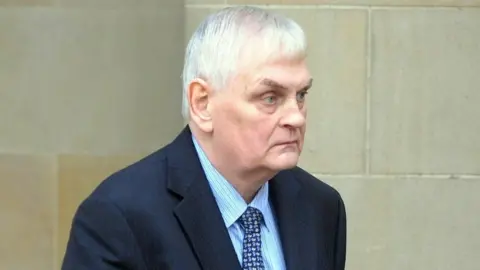 Spindrift
SpindriftFor the victims of the predatory coaches at Celtic Boys Club, this has been a long time coming.
The litigation relates to historical claims of sexual assault by convicted paedophiles Jim Torbett – the founder of the boys club – and Frank Cairney, a former coach.
In 2017, the BBC Scotland Disclosure team first revealed a series of fresh allegations against Torbett, who had previously been jailed for abusing three players in the 1970s.
The team tracked him down to California and he was soon arrested and jailed.
Cairney, another former coach, was also jailed as more and more victims came forward demanding justice.
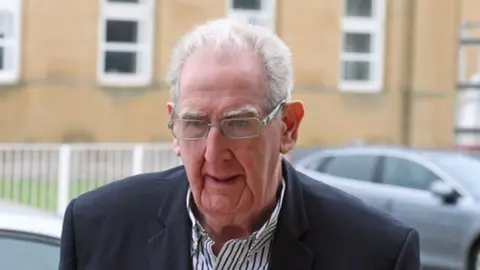 Press Team
Press TeamThe boys club, which was established in 1966, was perhaps the most successful feeder club of its generation in Scotland.
It had close ties to the senior club, sharing players, officials and premises. The boys played in the famous green and white hoops of Celtic.
The legal case has hinged on whether Celtic the company was a separate entity from the boys club.
Celtic had argued it was, and that therefore it was not legally responsible for the abuse which took place over decades at the hands of multiple abusers.
This was a position the company was heavily criticised for, since the evidence that the boys club was part of the fabric of Celtic seemed compelling.
Lawyers acting for the former players argued that the boys club and Celtic were “intimately connected” and the senior club was “vicariously liable” for assaults carried out.
That argument now seems settled.
A number of cases remain outstanding, but lawyers expect those to be concluded in the coming months – perhaps bringing some much-needed closure to what many believe is one of the darkest episodes in the history of Scottish football.

